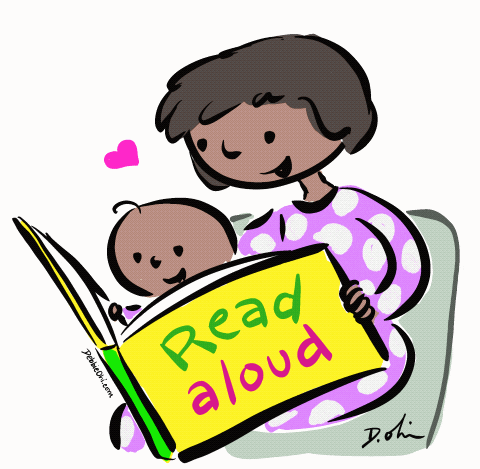APRENDER A LEER

SEGÚN LA INVESTIGACIÓN CIENTÍFICA
INTRODUCCIÓN: PRINCIPIOS TEÓRICOS E HISTORIA
1- Los tres fundamentos para leer
2- El lenguaje oral: Paso previo para el aprendizaje de la lectura
3- Decodificación: Conciencia fonológica y principio alfabético
7- Estrategias de comprensión lectora
8- La importancia del conocimiento
DE LA TEORÍA A LA PRÁCTICA: EJEMPLOS DE ACTIVIDADES
1- ETAPA DE EDUCACIÓN INFANTIL
2- ETAPA DE EDUCACIÓN PRIMARIA
CICLO INICIAL: 1º y 2º
CICLO MEDIO: 3º y 4º
CICLO SUPERIOR: 5º y 6º
3- ¿Y AHORA QUÉ?
LA ETAPA SUPERIOR
CONCLUSIONES y ANEXOS
LA INSTRUCCIÓN EXPLÍCITA Y SUS BENEFICIOS EN EL APRENDIZAJE DE LA LECTURA
LENGUAJE ORAL: La importancia de la prosodia
4 PREGUNTAS SOBRE LAS NUEVAS GUERRAS DE LA LECTURA
LO QUE LOS PADRES NECESITAN SABER SOBRE LA INVESTIGACIÓN SOBRE CÓMO LOS NIÑOS APRENDEN A LEER
BIBLIOGRAFIA
CALET, Nuria; FLORES, María; JIMENEZ-FERNANDEZ, Gracia y DEFIOR, Sylvia. Habilidades fonológicas suprasegmentales y desarrollo lector en niños de Educación Primaria. Anal. Psicol. [online]. 2016, vol.32, n.1 [citado 2023-11-22], pp.72-79.
Carballo, A. (2020). Neurociencia y Educación: el aprendizaje lector. Lectura y dificultades lectoras en el siglo XXI. Ediciones Octaedro.
Castles, A., Kathleen Rastle, K. , Nation K. Poner fin a las guerras de lectura: adquisición de lectura de principiante a experto . Ciencia psicológica en el interés público , 2018; 19 1: 5 DOI: 10.1177 / 1529100618772271
Cavendish, W. & Hodnett, K. (2017). Current practice alert: Collaborative Strategic Reading. Division of Learning Disabilities ALERT Series: A publication of the Council for Exceptional Children’s Division for Learning Disabilities and Division for Research. Alert 26, 1-6.
Dehane, Stanislas (2009). El cerebro lector. Clave intelectual
Defior, S. (2008). ¿Cómo facilitar el aprendizaje inicial de la lectoescritura? Papel de las habilidades fonológicas. Infancia y aprendizaje, 31(3), 333-345.
Defior, S., Serrano, F., y Marín-Cano, M. J. (2008). El poder predictivo de las habilidades de conciencia fonológica en la lectura y escritura en castellano. Estudios de desarrollo del lenguaje y educación, 339-347. https://doi.org/10.1174/021037008785702983
Literacy, D. E. (2008). Report of the national early literacy panel Washington. DC National Institute for Literacy (Informe NELP)
Etchepareborda, M. C., y Habib, M. (2001). Bases neurobiológicas de la conciencia fonológica: su compromiso en la dislexia. Revista de neurología clínica, 2(1), 5-23.
Geary, D. An Evolutionarily Informed Education Science (2008)
Gillon, G. T. (2017). Phonological awareness: From research to practice. Guilford Publications.
Hjetland, H. N., Brinchmann, E. I., Scherer, R., y Melby‐Lervåg, M. (2017). Preschool predictors of later reading comprehension ability: A systematic review. Campbell Systematic Reviews, 13(1), 1-155.
Krashen, S. Defending Whole Language: The Limits of Phonics Instruction and the Efficacy of Whole Language Instruction (2002)
Melby-Lervåg, M., Lyster, S. A. H., y Hulme, C. (2012). Phonological skills and their role in learning to read: a meta-analytic review. Psychological bulletin, 138(2), 322.
Ripoll, J. C. y Aguado, G. (2015). Enseñar a leer: Cómo hacer lectores competentes. Editorial Giunti EOS
Ripoll, J. C. (2014)
Solé, Isabel (1992). Estrategias de lectura. Editorial Graó.
Sweller, J. (1994). Cognitive load theory, learning difficulty and instructional design. Learning and instruction, 4, 295–312.
Tobia, V., Bonifacci, P. (2015). The simple view of reading in a transparent orthography: The stronger role of oral comprehension. Article in Reading and Writing.
Vallés Arándiga, Antonio. (2005). Comprensión lectora y procesos psicológicos. Liberabit, 11(11), 41-48.
Willingham, D. (2016) Educando niños lectores. TEELL editorial
Willingham, D. T. (2020). La mente lectora: Una aproximación desde las ciencias cognitivas a cómo leemos (Aptus, Trad.). (Trabajo original publicado en 2019).
ENLACES
https://www.intralineas.com/blog/que-estrategias-de-comprension-existen
https://www.nichd.nih.gov/sites/default/files/publications/pubs/nrp/Documents/report.pdf